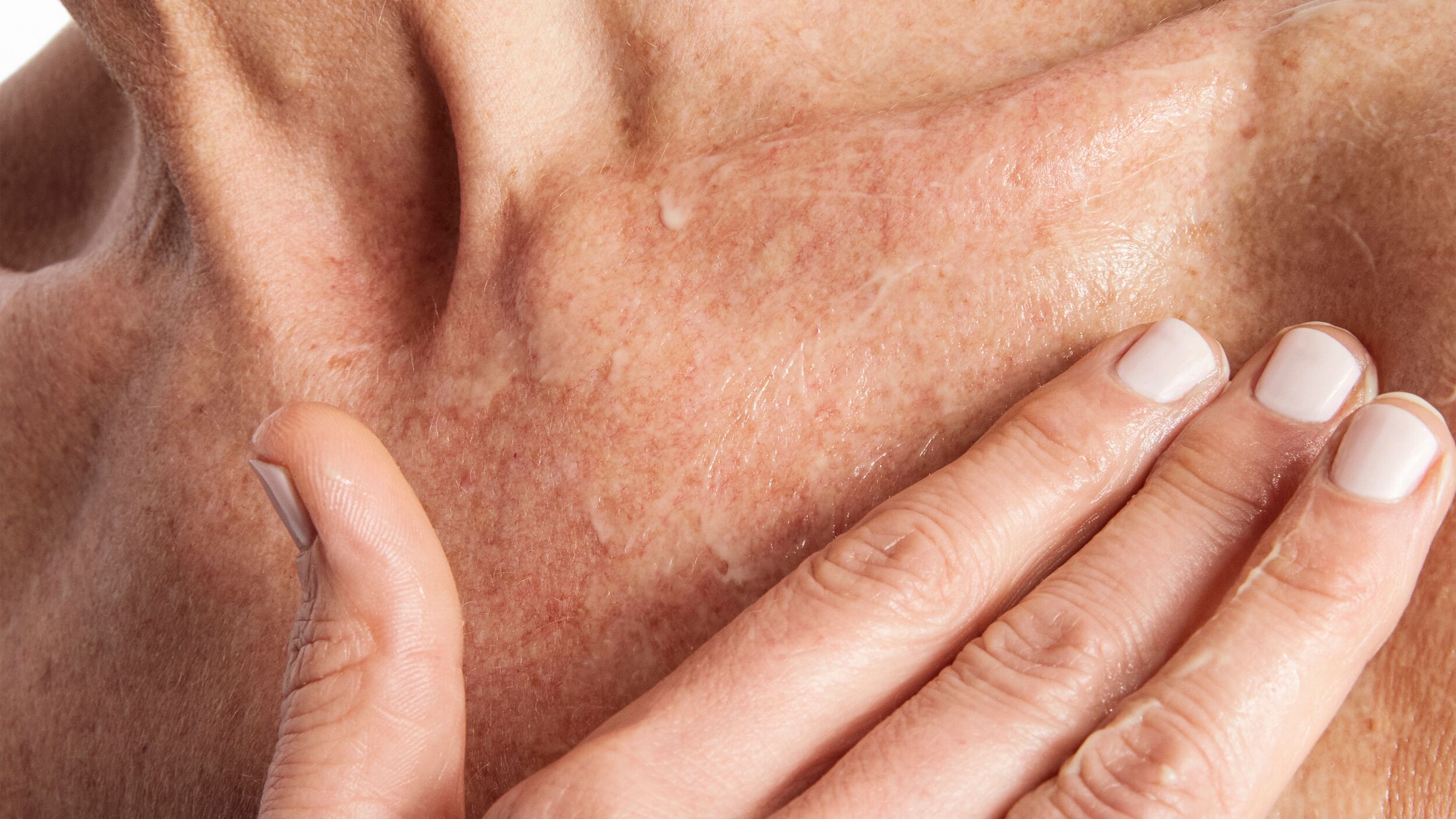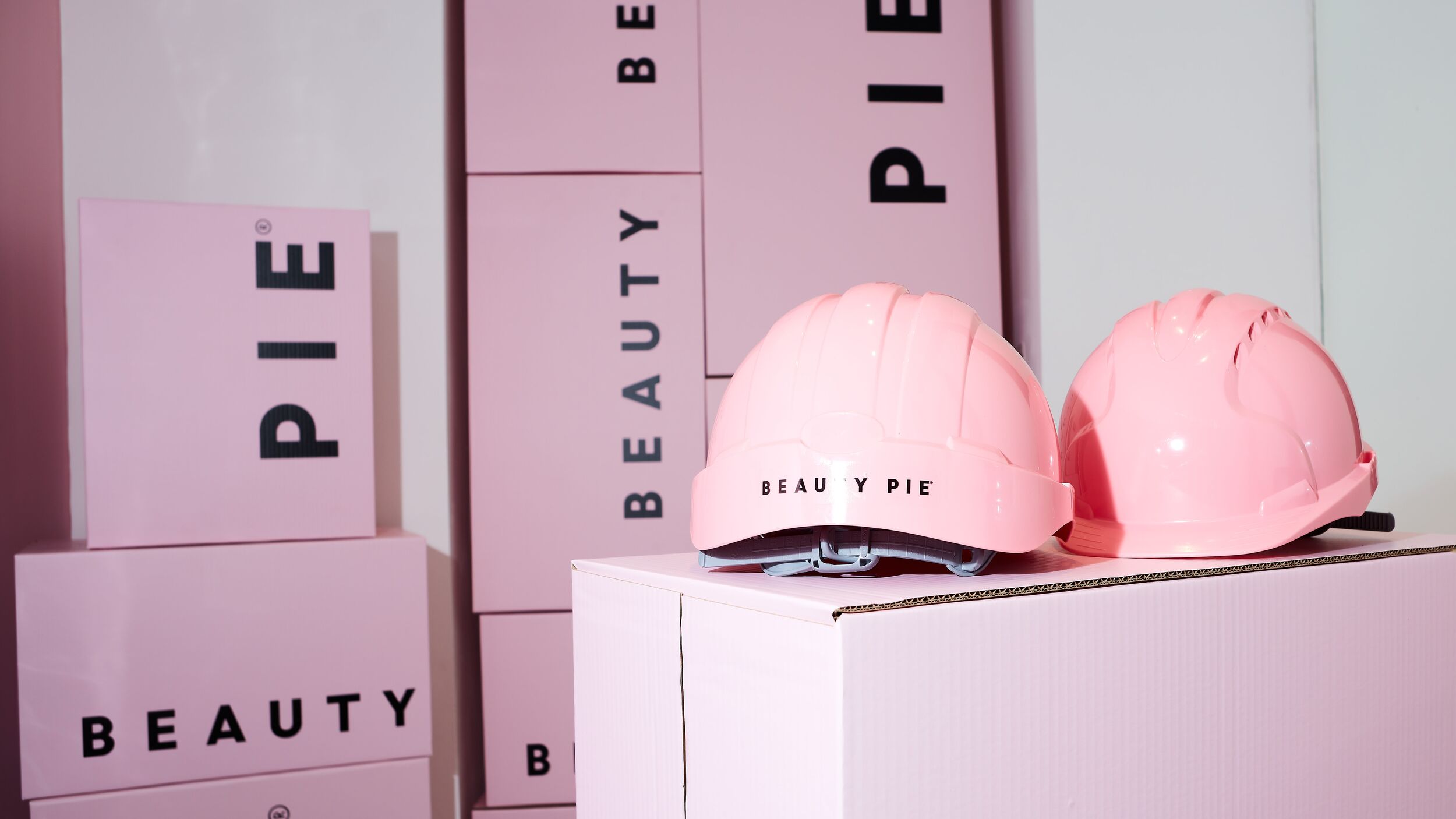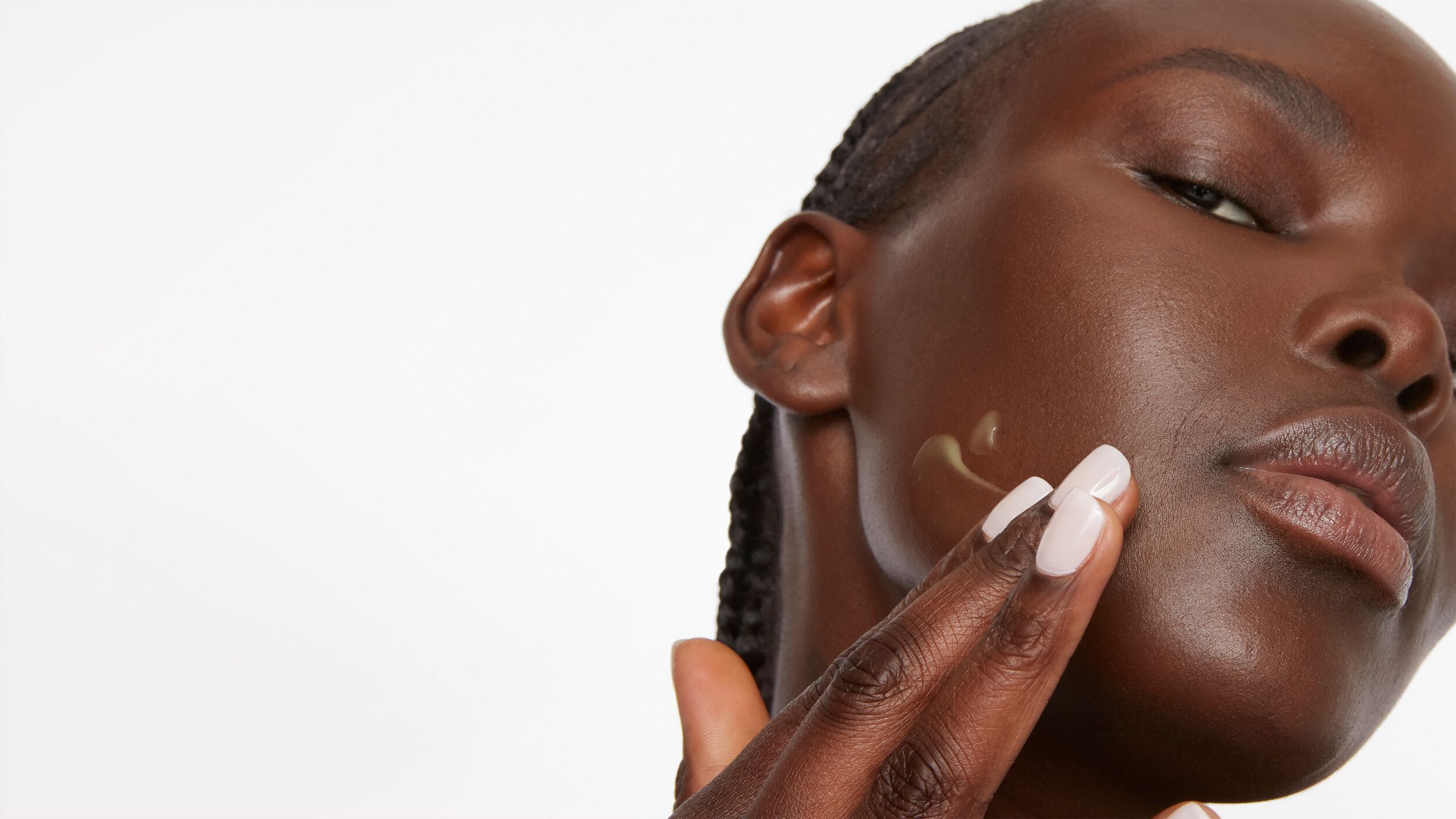
There are so many myths and misconceptions masquerading as fact that it’s becoming increasingly difficult to get to grips with. But it’s also one of skincare’s hero ingredients - if not the undisputed champion of the anti-aging arsenal - so we’ve broken down your most pressing Retinol questions, starting with the basics: what is Retinol, how to use it, and which ingredients you can use retinol with, to bring you a comprehensive guide. Consider this your Retinol masterclass – you’ll be a pro by the end.
Contents
What is Retinol?
Retinol is a derivative of Vitamin A. It has two key functions within the skin: the first is to speed up cell turnover, which means it accelerates the rate at which the skin lets go of old skin cells that it no longer needs. This is especially helpful as we get older, as the rate at which our skin cells turnover slows, leading to complexion frustrations like dryness, breakouts, and an all-around lack of radiance.
By getting rid of these redundant cells, skin becomes clearer and fresher, with a reduction in things like hyperpigmentation and fine lines – as well as improved skin texture. Retinol also works wonders on blemishes as it takes the old skin cells out of the equation – meaning there’s less chance of them combining with excess oil to block a pore.
Retinol encourages the skin to get out of a rut and behave like its younger self again.
The second key function is increasing collagen and elastin production. Again, the rate at which our skin replenishes supplies of these important proteins that give our skin ‘bounce’ and spring dwindles as we age, leading to a loss of elasticity and lines. Retinol encourages the skin to get out of a rut and behave like its younger self again.
Your Retinol Questions Answered
What’s the difference between Retinol and Retinoid?
When people say Retinol, what many of us actually mean is Retinoids – a family of ingredients of which Retinol is a part. Sitting at the top of this family tree is Retinoic Acid. This is the most potent form of Retinoid, and in the UK is currently only available on prescription. It was traditionally used for treating acne (and still is today) before prescribers noticed impressive side effects on fine lines and wrinkles. As it is the highest-strength Retinoid, there are also some less attractive side effects to contend with, like extreme dryness and the potential for irritation.
Next up is Retinal. This is a cosmetic ingredient (so there’s no need for a prescription) and when applied to the skin, requires just one conversion step to become Retinoic Acid within the skin. It works fast, and thanks to its antimicrobial properties, helps to clear blemishes as well as tackle fine lines.
After Retinal comes Retinol, which is two conversion steps away from Retinoic Acid. This is the most commonly used retinoid on the skincare market and promises the kind of results that make people ask if you’ve been on holiday as you look so ‘rested’ - fine lines softened, skin smoother, clearer, more radiant.
Then, there are Retinol Esters. These are Retinoids combined with another ingredient and can be found on the ingredients list as ‘Retinyl’ followed by another word like ‘Palmitate’. As they’re a combination, rather than a pure Retinoid, their effects are weaker, which makes them a good starting point for anyone who’s new to the category or has sensitive skin.
When people say Retinol, what many of us actually mean is Retinoids – a family of ingredients of which Retinol is a part
This is when it gets a little more complex. Outside of this straightforward family tree sits a type of ingredient called Retinoic Acid Esters. Not to be confused with the Retinol Esters mentioned previously, these work differently within the skin. Instead of converting into Retinoic Acid when they reach the skin, Retinoic Acid Esters bind directly to receptors in the skin, allowing them to get to work fast. They’re newer ingredients and tend to be more expensive to formulate with.
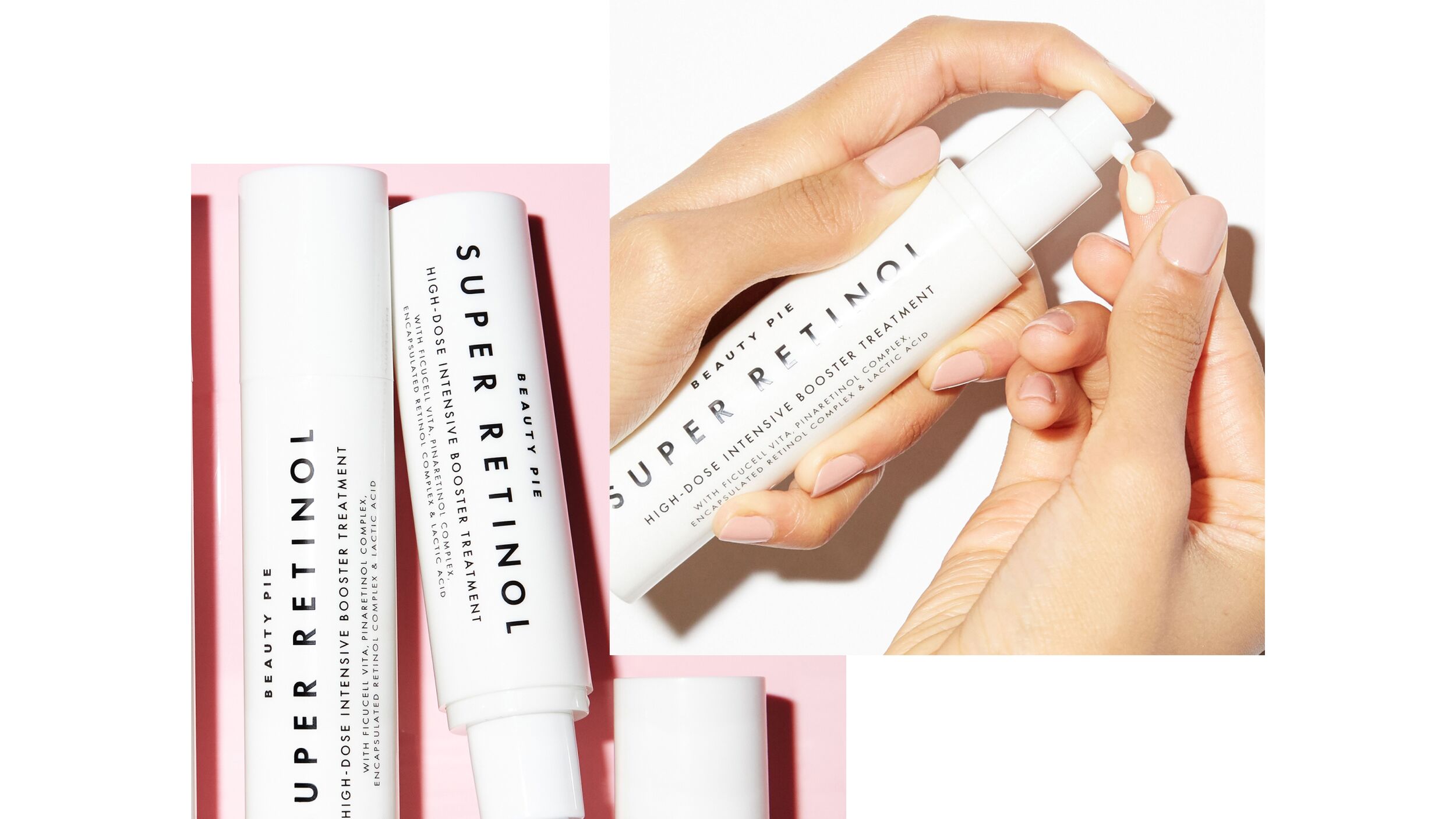 When people say Retinol, what many of us actually mean is Retinoids, a family of ingredients of which Retinol is a part.
When people say Retinol, what many of us actually mean is Retinoids, a family of ingredients of which Retinol is a part.To use an analogy, think of Retinoids as employees of a company. Retinoic Acid is the CEO. It gets results but also needs to make difficult decisions, which brings with it the potential for upset. Retinal is its ‘right hand’ and is one down in the pecking order from the CEO. Retinol is beneath Retinal and is two steps away from the top job. Retinoid Esters would be an entry-level position. Finally, Retinoic Acid Esters are consultants, swooping in to offer expert help and advice without being employees of the company.
Is it better to use Retinol at night?
Retinoids should only ever be applied at night. This is because they break down in sunlight, making it a waste of your time and money to have them just simply disappear when you step outside your home.
A second reason is that retinoids are making your skin work harder and faster to clear up existing damage in the form of hyperpigmentation and loss of collagen, and they can’t do that very well if they’re also being bombarded by things like UV rays and pollution. It’s a bit like trying to clear up when a party is in full swing. By waiting until the evening, when your skin doesn’t have so much to contend with, Retinol will be better able to work its magic.
Retinoids should only ever be applied at night.
It’s also worth noting that because Retinol has sped up cell turnover and brought all your lovely, fresh, clear skin to the surface, you really need to be wearing a daily SPF the day after using it. Otherwise, UV exposure will undo all your good work.
Can you use Retinol every day?
Retinol can be used every day, but not straight away. As with any ingredient that’s new to your routine, there is the risk of irritation. That’s why it’s smart to use retinol once and then wait patiently for 48 or 72 hours to make sure your skin is happy before applying it for a second time. As Retinol is encouraging the skin to work at a faster rate, accelerating its production of collagen and elastin and speeding up cell turnover, you might find there’s a small adjustment period where your skin feels dry and flaky. If this happens, again, go slow on application, and restore lost moisture with nourishing ingredients like ceramides.
Retinol can be used every day, but not straight away. As with any ingredient that’s new to your routine, there is the risk of irritation.
To begin with, use Retinol twice a week, working up to using it every day, or every other day. How often you use retinol will ultimately depend on how your skin looks, feels and needs.
How to Combine Retinol with Other Skincare Ingredients
Can I use Retinol with Vitamin C?
"Yes!" says Dr. Andrew Markey. Alternate their use (Vitamin C in the morning and then Retinol in the evening) or up the efficiency and opt for a combination product like our Super Retinol (+ Vitamin C) Night Renewal Moisturizer which contains a powerful Vitamin C ester.
 Retinol and Vitamin C can work exceptionally well together within your skincare routine.
Retinol and Vitamin C can work exceptionally well together within your skincare routine.Vitamin C is a powerful antioxidant that helps defend the skin from things like UV rays and pollution which can trigger pigmentation and prematurely break down collagen and elastin. Retinol lessens the appearance of dark marks on the skin, and it encourages it to make more of these important proteins. So, together, these ingredients are protecting, clearing, and topping up the skin to keep hyperpigmentation and lines at bay.
Studies show that combining Vitamin C with Vitamin A (Retinol) may help stabilize Retinol
Dr Andrew Markey, Consultant Dermatologist
Vitamin C can be used during the day or night, while Retinol is an evening-only ingredient. Use them either as bookends of your routine, with Vitamin C in the morning and Retinol at night, or combine them in one punchy evening serum.
Can I use Retinol with Glycolic Acid or Salicylic Acid?
When it comes to battling blemishes, Salicylic Acid is the ingredient that most people rely on. It’s a Beta-Hydroxy Acid and is oil soluble, which allows it to dive into pores to clear away blockages caused by debris and old skin cells. Its effects are similar to Retinol, which speeds up cell turnover to clear skin – they just take slightly different routes to get there.
Dermatologists remain divided as to what extent Acids and Retinols can be combined in the same skincare routine. While both AHA (Alpha-Hydroxy Acids i.e. Glycolic Acid) & BHA (Beta-Hydroxy Acids i.e. Salicylic Acid) are safe to combine with over-the-counter strength Retinol, general consensus is to err on the side of caution and avoid mixing – particularly if you have reactive, sensitive skin.
"As ingredients – both Retinoids and Acids are irritants, and as such overuse can make irritation more problematic," says Dr. Andrew Markey. “However, Retinoids used in the right way, with the right strength and the right routine can safely be used with Acids. There is even good evidence that combining them works well.”
"Prioritise your Retinoids – think of them as the ‘master active’ – and get that routine right first. Then – if necessary – think about adding in Acids. Most dermatologists would recommend Retinol usage for PM, and AHAs, BHAs or antioxidants for AM. And always use sunscreen."
It makes sense then to have Retinol and Salicylic Acid in the same routine, especially as clearing the old cells will make it easier for retinol to penetrate the skin. The caveat would be that not all skin types will be hardy enough to use these actives back-to-back. Consider using them on alternate evenings, or applying Salicylic Acid in the morning and Retinol in the evening.
Can I use Retinol with Hyaluronic Acid?
"Absolutely," says Dr Markey. "Hyaluronic acid is a moisturizing must-have – and the perfect 'plus one' for any active skincare ingredient, including Retinol. In fact, it’s one of skincare’s most effective power couples (see also: Vitamin C)."
While Retinol doesn’t always play nicely with other ingredients, Hyaluronic Acid is compatible with just about anything. It’s a humectant and works like a powerful magnet to draw moisture into the skin, with a single molecule able to hold up to a thousand times its own weight in water.
The better hydrated your skin is, the better the rest of your skincare will perform, making your active ingredients (like retinol) more effective. Think of it like trying to go the whole day without a glass of water – you’ll feel foggier compared to when you’re well-hydrated and firing on all cylinders. Hyaluronic acid has the potential to supercharge the potential of your retinol serum at the same time as delivering a nice cool glass of water to the skin.
Can I use Retinol with Niacinamide?
"Yes – in fact, many dermatologists recommend buffering sensitive skin with (anti-inflammatory) Niacinamide before applying Retinol,” says Dr. Andrew Markey.
Niacinamide is a bit like Hyaluronic Acid in that it's a ‘friendly’ ingredient that pairs perfectly with most actives. It can definitely be used with Retinol and supports its work in a few different ways. On blemishes, Niacinamide is great at calming and soothing red, angry breakouts and also balances oil in the skin.
So, between Retinol and Niacinamide, they reduce oil and old skin cells, making spots far less likely. On wrinkles, Niacinamide increases the energy levels of our skin cells, giving them more get-up-and-go to support the increased speeds that Retinol works to. And then finally, Niacinamide also helps to brighten skin and improve its tone, for an all-around clearer, fresher-looking complexion. Niacinamide and Retinol can be layered back to back, making it easy to team them up in your routine.
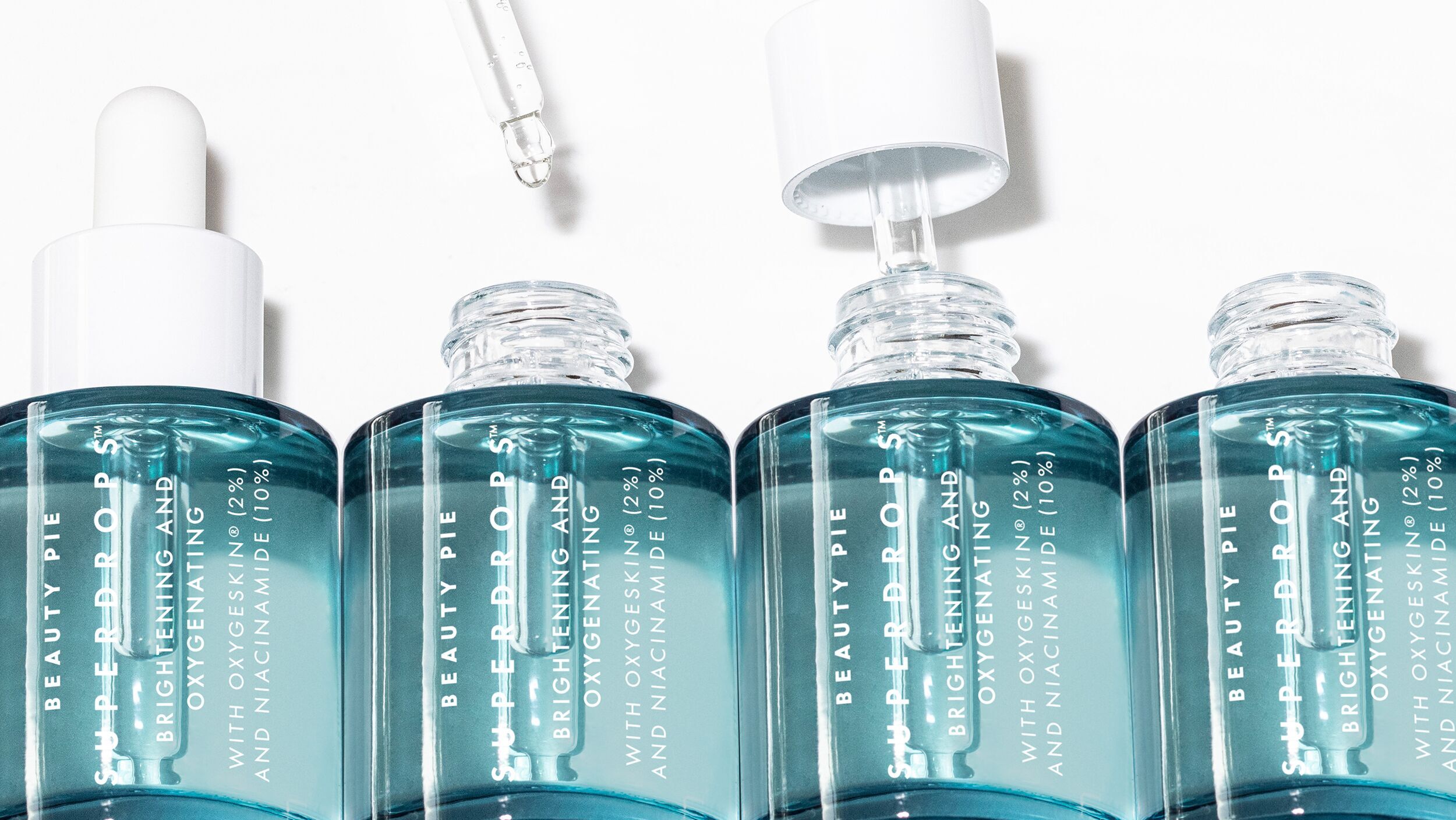 Between Retinol and Niacinamide, they reduce oil and old skin cells, making spots far less likely.
Between Retinol and Niacinamide, they reduce oil and old skin cells, making spots far less likely.How to combine products with Retinol
Experts recommend you only combine Retinol and Acids in the same routine if advised to do so by a dermatologist, otherwise:
Pick ONE for your regular skincare routine, and ONE for a weekly (or even monthly) skincare treatment.
Swap out any acid-containing products to avoid reactions on Retinol days.
Avoid Retinol if you’re on prescription Keratolytics (prescription skin resurfacers) or Benzoyl Peroxides.
Opt for a slow-release encapsulated Retinol to minimize irritation.
Does Retinol help with breakouts?
Spots form when oil and old skin cells combine to block a pore. It’s essentially a traffic jam in your skin and can be fuelled by things like hormones, stress, diet, and using the wrong skincare. Retinol helps to clear existing jams and prevent future ones by reducing the amount of time these old cells hang around on your skin. If they’re not outstaying their welcome, any oil in your skin will be able to flow freely without blockages. Some Retinoids, like Retinal, also have antibacterial properties which help to reduce the bacteria within the blemishes.
How can you tell that Retinol is working?
You will be able to tell that Retinol is working if you start to see improvements in the texture and general appearance of your skin. Some people might be able to spot changes in their skin quite quickly, while others will have to be more patient. Invisible to the naked eye, the upper layers of our skin go through cycles whereby it sheds older cells, and in most cases, the benefits of Retinol won’t show until it has completed a couple of these cycles.
The average length of time for a skin cycle is 28 days but can vary between around 21 days for someone in their 20s or 30s, and rise to 45 days if you’re in your 50s or 60s.
Remember, consistency is key to getting results from any skincare ingredient or product. You wouldn’t take one french lesson and expect to be fluent – think practice and patience.
Is it safe to use Retinol during pregnancy?
When taken orally (in the case of prescription retinoids like tretinoin) Retinoids can impact the health of a fetus. The potential impact of using retinol topically when you’re expecting is not as clear, but the guidance to avoid them during pregnancy remains to ensure maximum safety for parents and babies. If you are taking prescription strength Retinoids, your doctor will also prescribe birth control and may recommend you take regular pregnancy tests as part of your treatment.
When taken orally (in the case of prescription retinoids like tretinoin) Retinoids can impact the health of a fetus.
If you’re looking to replace Retinol in your routine during pregnancy, the best substitute ingredient will depend on your most pressing skincare concern. Peptides will help to plump fine lines and reduce sagging and liquid exfoliants like alpha and poly-hydroxy acids work to whisk old skin cells from the surface of your complexion. Azelaic Acid is also great at bringing down blemishes and reducing redness.
What happens if I stop using Retinol?
As Retinol is a cosmetic ingredient, when you stop using it your skin will return to how it looked before. So if you previously felt your skin was prone to blemishes, dullness, or experiencing an influx of fine lines, these concerns will start to creep back in. To really uphold the benefits of retinol you need to commit to continuous, regular use. That being said, other than a slight step backward in how your skin appears, there shouldn’t be any negative side effects on how comfortable your skin feels.
Can I apply Retinol after dermarolling?
"Most dermatologists recommend that patients stop retinoid creams one week before and restart one week after traumatic treatments to the skin (i.e. waxing, laser and medical microneedling where needles are used intentionally to cause pinpoint bleeding)," says Consultant Dermatologist Dr Andrew C Markey MD FRCP.
"If you are using very short needles, as part of a home regime, then do a test patch with the roller to check that your skin is okay with the combination and just be a little careful at first. Obviously, applying any product immediately after dermarolling may increase absorption which can be a good thing, or increase risk of irritation."
Prescription Retinoids and Cosmetic Retinoid
If you’re already using a prescription Retinoid, it is overkill to add Retinol products into your routine. Nor should you combine Retinols with strong regular Alpha Hydroxy Acid application (which may deactivate OR hyperactivate them), or any prescription Keratolytics (unless your doctor says you can) or Benzoyl Peroxides. If in doubt - it’s always best to check with your dermatologist.
Is encapsulated Retinol more effective?
Encapsulation protects the Retinol from degradation, increases its stability and improves delivery to the skin. Encapsulated retinol (like our Super Retinol system) allows for a steady release, to ensure a prolonged action over time and increases the biocompatibility and efficacy while helping to avoid irritation. So you can simultaneously look great, and overhaul your skin.
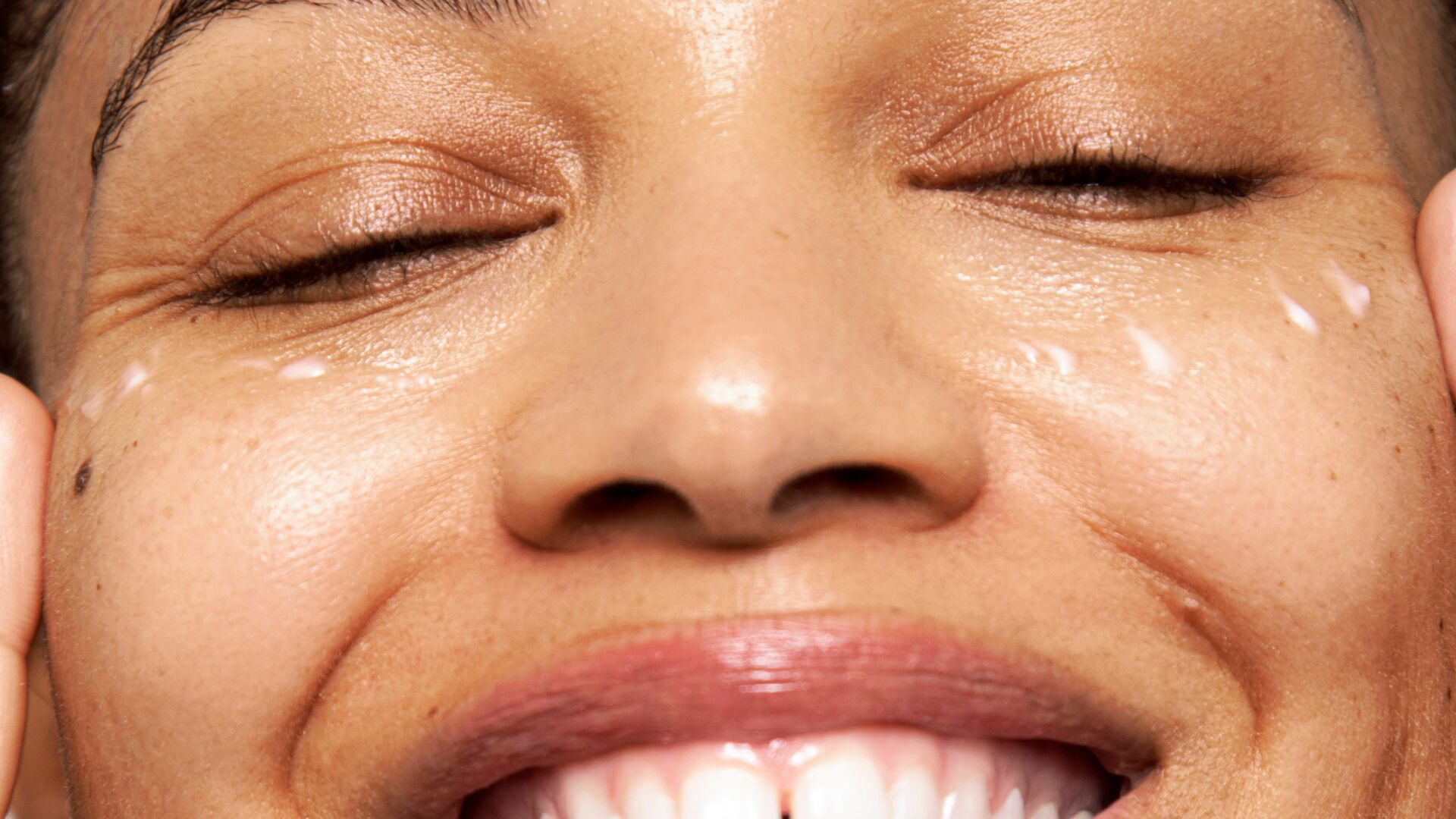
How much Retinol should I use?
Use a pea-sized amount over your entire face. If it’s an oil, just a few drops. If you have sensitive skin or are prone to irritation, use a slow-release encapsulate Retinol to minimize irritation.
What percentage Retinol should I start with?
If you’re new to Retinol, it’s sensible to start with a low percentage. Side effects of Retinol usagecan include redness, dryness, itchiness and overall sensitivity, although everyone’s skin is different.
"People who use retinoids will commonly experience dry and irritated skin, especially after using a new product," says Dr Markey. "It’s not always a sign that you’re allergic, but almost a signal from your skin that the active ingredients are working."
People who use retinoids will commonly experience dry and irritated skin, especially after using a new product,
Dr Andrew Markey, Consultant Dermatologist
"Try to see it as a signal to either up your usage – or scale it back (i.e. applying Retinol on alternate nights, or opting for a lower strength product.)
The same can be said for combining ingredients with retinoids – always optimize your Retinol routine first, then add in further ingredients, if recommended."
Retinol products (like our Super Retinol) are formulated with Retinol that’s encapsulated within its complex, which allows it to be absorbed by the skin BEFORE releasing. So you get maximum efficacy, without the irritation.
What Strength of Retinol Do I Need For My Skin Type?
Which Retinol product will give you the most success depends on the type of your skin. Regardless of your skin type and which product you use, remember to always use SPF when using a Retinol product.
Best Retinol for Sensitive Skin
Sensitive skin needs to acclimate slowly with limited risk of irritation. A low percentage Retinol, as low as 0.025%, such as our Super Retinol (+ Vitamin C) Night Renewal Moisturizer minimizes the risk of irritation. Look for products which contain encapsulated Retinol which will allow your skin to absorb the complex before release.
Best Retinol best for normal and combination skin
A mid percentage Retinol product, 0.25%. Monitor your skin's reaction to the product over 12 weeks and, depending on your skin’s reaction, you can then work your way up to something stronger.
Best Retinol for tougher skin
More tolerant skin types can start with a mid-level percentage, but you should still watch out for side effects. You can start with a mid/high percentage Retinol product of 0.4% before working your way up to 1.0%.
The highest concentration of Retinol you can get without a prescription is 2.0%. If you have tougher skin not prone to irritation, you can supercharge your routine with Youthbomb™ Double-Retinol™ Action Skin Overhaul™ Serum which features two kinds of retinoids: microencapsulated Retinol (3%) to help reduce the visibility of wrinkles, even skin tone and enhance firmness, and Granactive Retinoid (2%), a low-irritation, bioavailable form of Vitamin A. Also in the mix: Lactic Acid to gently polish the skin’s surface, and Niacinamide soothe, strengthen, brighten and boost collagen.
Can I use Retinol under my eyes?
The skin under your eyes is thinner and more delicate than the skin on the rest of your face so can respond differently to Retinol use. To use Retinol under your eyes, use a Retinol eye cream specifically designed for under eye use such as our Super Retinol Anti-Wrinkle Eye Cream
And - absolutely crucial - always add SPF, daily!

